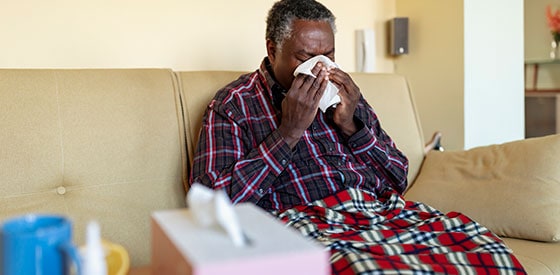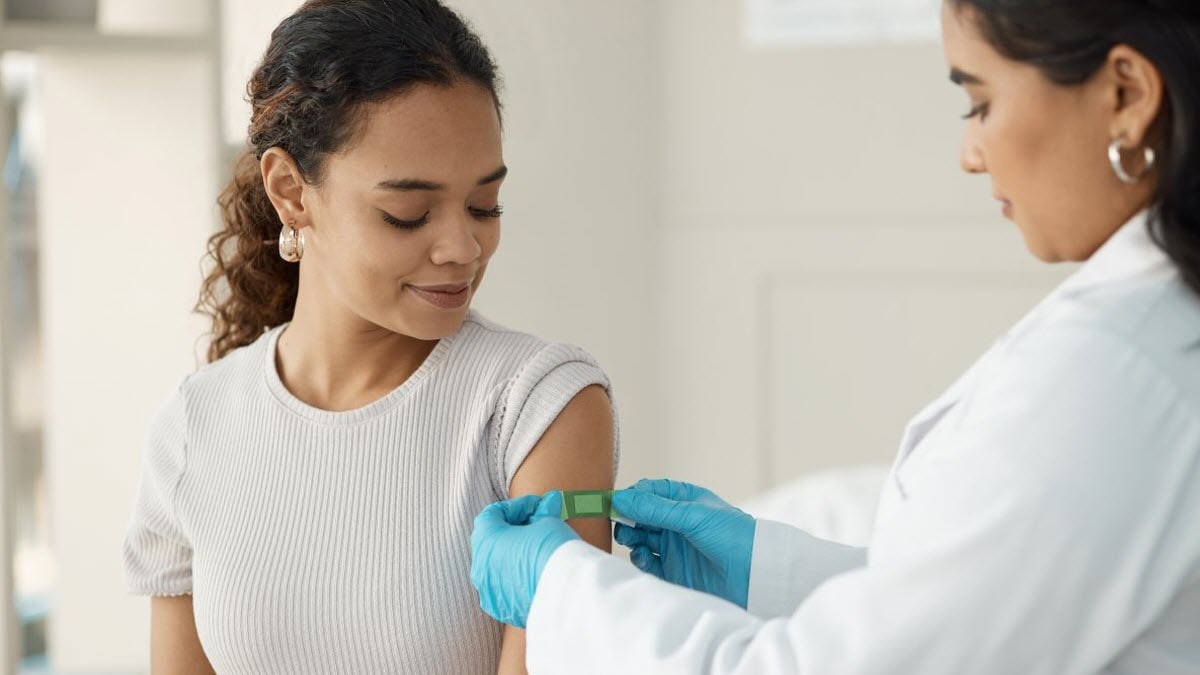What to know
- CDC recommends everyone ages 75 and older get an RSV vaccine.
- CDC recommends adults ages 60–74 who are at increased risk of severe RSV disease get an RSV vaccine.
- The RSV vaccine is not currently an annual vaccine. If you have received an RSV vaccine already (including last year), you should not get another RSV vaccine at this time.
- You can get one at any time, but the best time to get vaccinated is in late summer and early fall.

Available Vaccines
Three RSV vaccines are licensed by the U.S. Food and Drug Administration for use in adults ages 60 and older in the United States:
- GSK's Arexvy
- Moderna's mResvia
- Pfizer's Abrysvo
These vaccines work by causing an immune response that can protect you from respiratory disease if you get RSV in the future. Eligible adults can get any one of these three vaccines. The RSV vaccine is given as a single dose.
Who should get an RSV vaccine?
CDC recommends an RSV vaccine for all adults ages 75 years and older and for adults ages 60–74 years who are at increased risk of severe RSV.
Conditions that increase your risk for severe illness include:
- Chronic heart or lung disease
- Weakened immune system
- Certain other medical conditions
- Living in a nursing home
For a complete list of medical conditions that lead to increased risk of severe RSV, see Clinical Overview of RSV.
Reminder
Who should not get an RSV vaccine?
You should not get an RSV vaccine if you've ever had a severe allergic reaction to any component of the vaccine. Information about the three available RSV vaccines can be found in the manufacturer's package inserts for GSK's Arexvy, Moderna's mResvia, and Pfizer's Abrysvo.
When should I get an RSV vaccine?
If you haven’t gotten an RSV vaccine yet, you can get one at any time, but the best time to get vaccinated is in late summer and early fall before RSV usually starts to spread in the community. In most of the continental United States, this means getting your vaccine during August–October.
If you have a moderate or severe illness, you should wait until you recover before receiving an RSV vaccine. If you have a minor illness, such as a cold, you can get an RSV vaccine.
How long do these vaccines work?
One dose of RSV vaccine provides protection against RSV disease in adults ages 60 years and older for at least two years.
Because Arexvy and Abrysvo were licensed by FDA in May 2023 and mResvia was licensed in June 2024, we are still learning about how long RSV vaccines provide protection.
Additional data are needed for all three vaccines to determine how long the protection lasts.
What are the possible side effects?
Side effects such as pain, redness, and swelling where the shot is given, fatigue, fever, headache, nausea, diarrhea, and muscle or joint pain may occur after you get an RSV vaccine. These side effects are usually mild. Patients who have experienced these symptoms when getting other vaccines might be more likely to experience them after getting an RSV vaccine.
A small number of participants in clinical trials developed serious neurologic conditions, including Guillain-Barré syndrome (GBS), after receiving GSK's Arexvy or Pfizer's Abrysvo. GBS is a rare condition in which your immune system attacks your nerves, causing symptoms such as weakness.
Post-licensure safety data on GSK and Pfizer RSV vaccines are available from a partnership between FDA and the Centers for Medicare and Medicaid Services (CMS). FDA estimated the risk for Guillain-Barré syndrome (GBS) associated with receiving Pfizer’s Abrysvo or GSK’s Arexvy RSV vaccine among Medicare recipients ages 65 years and older. The Advisory Committe on Immunization Practices (ACIP) concluded that the available data support existence of an increased risk of GBS after RSV vaccination with both GSK’s Arexvy and Pfizer’s Abrysvo. While there is still uncertainty in the amount of increased GBS risk with these vaccines, ACIP understands that the GBS risk appears comparable to, and potentially greater than, that of other currently licensed and recommended adult vaccines, and is on the order of less than 10 cases per one million older adults vaccinated. Learn more about GBS and vaccines.
There were no reports of GBS among adults who received Moderna's mResvia vaccine in clinical trials, but a similar safety signal cannot be ruled out from the clinical trial data alone—clinical trials may be too small to capture rare events such as GBS. Vaccine safety monitoring systems will continue to monitor for GBS caused by any RSV vaccine, including mResvia.
Based on the available data, ACIP and CDC continue to conclude that the benefits of RSV vaccination, in terms of preventable hospitalizations and deaths, outweigh the potential risk for GBS, among adults ages 75 years and older and among adults ages 60-74 years at increased risk of severe RSV disease.
CDC and FDA will continue to monitor RSV vaccine safety and will share data as they become available.
As new data become available, CDC may update RSV vaccine recommendations.
For information on RSV vaccine safety, including side effects:
Reporting adverse events
Sign up for V-Safe
If you experience side effects from an RSV vaccine, you should report them to the Vaccine Adverse Event Reporting System (VAERS). Your healthcare provider might file this report, or you can do it yourself through the VAERS website, or by calling 1-800-822-7967.
If you have any questions about side effects from getting an RSV vaccine, talk with your healthcare provider.
- Melgar M, Britton A, Roper LE, et al. Use of Respiratory Syncytial Virus Vaccines in Older Adults: Recommendations of the Advisory Committee on Immunization Practices — United States, 2023. MMWR Morb Mortal Wkly Rep. 2023;72:793–801. DOI: http://dx.doi.org/10.15585/mmwr.mm7229a4

